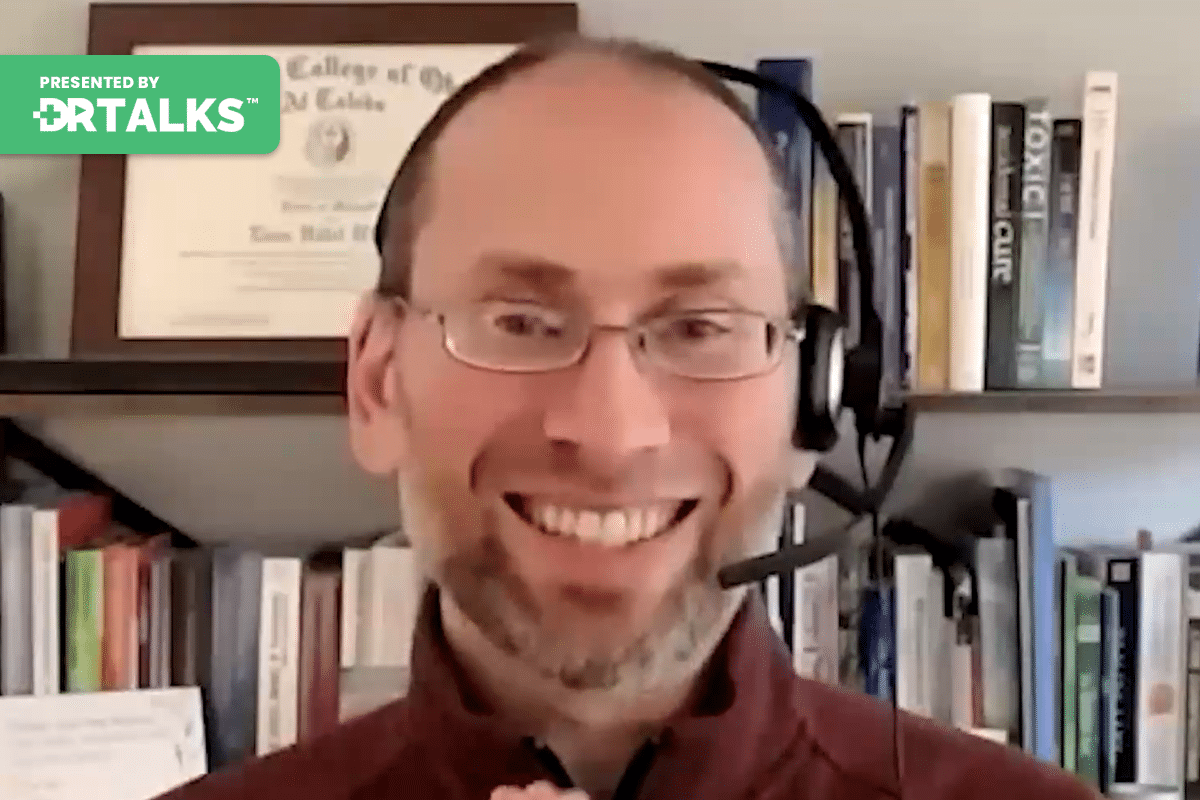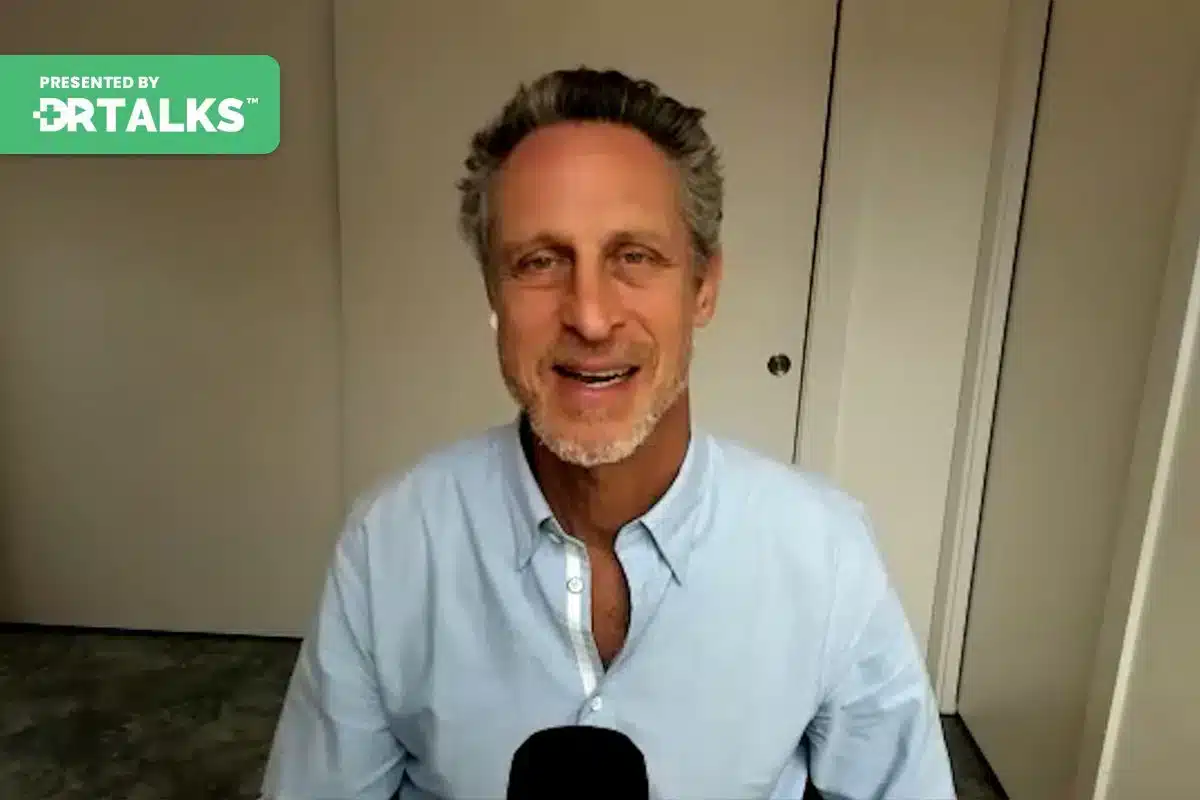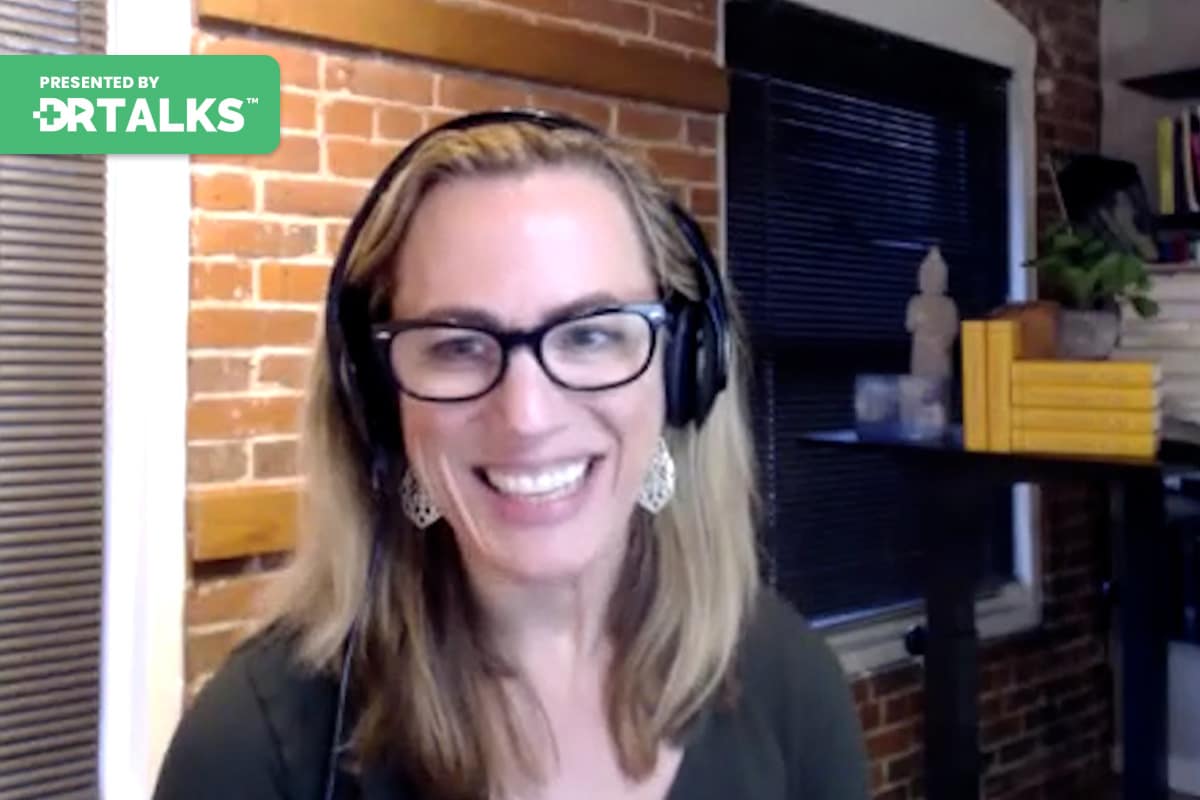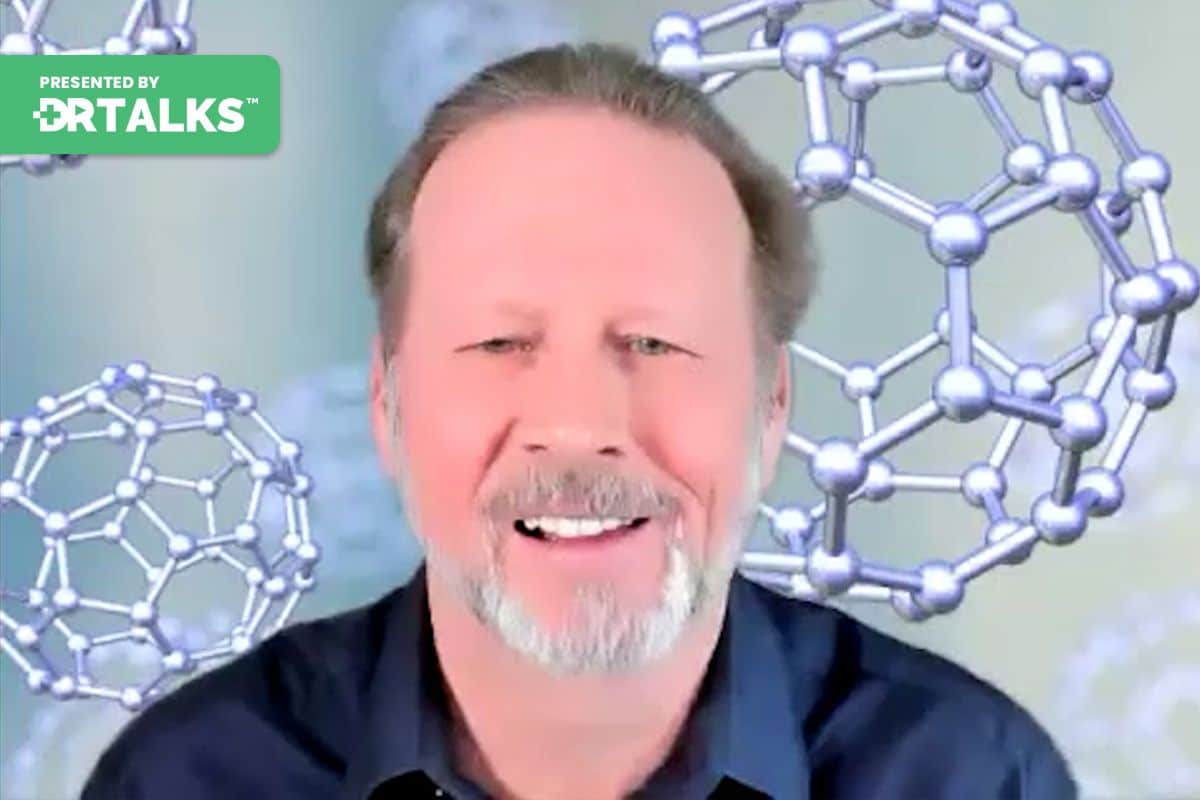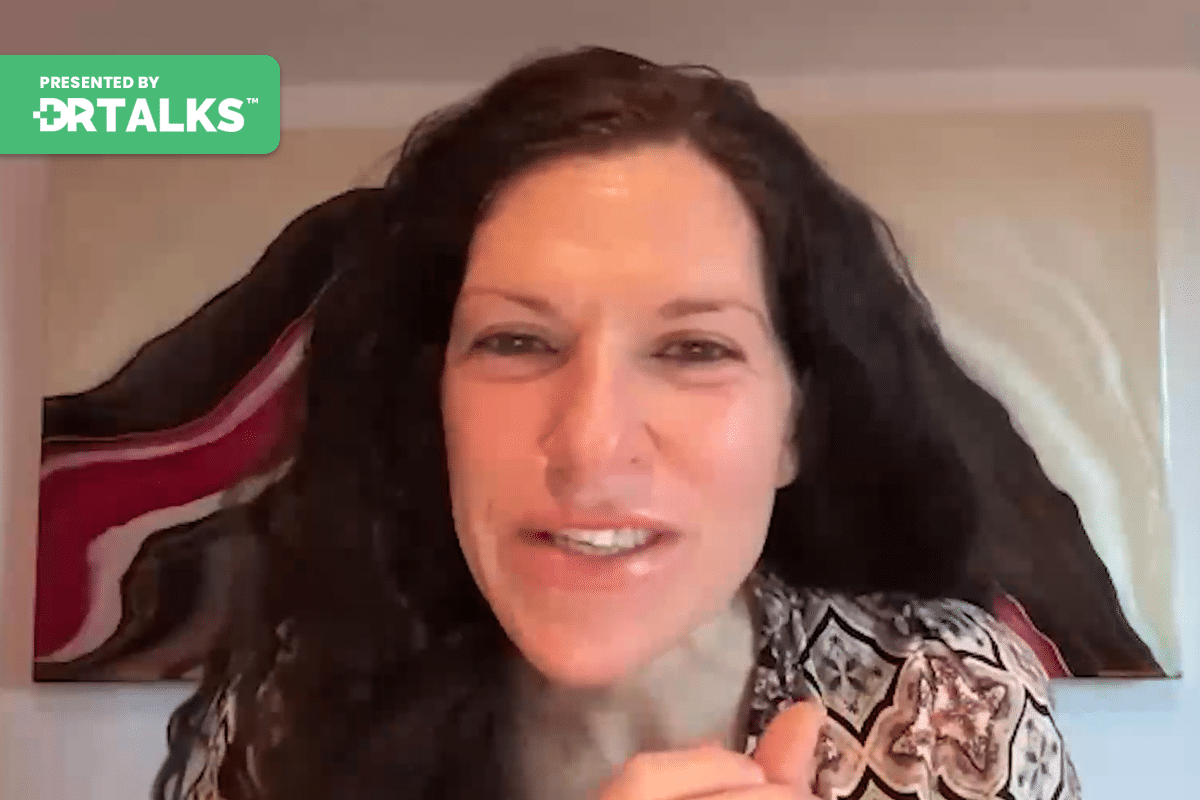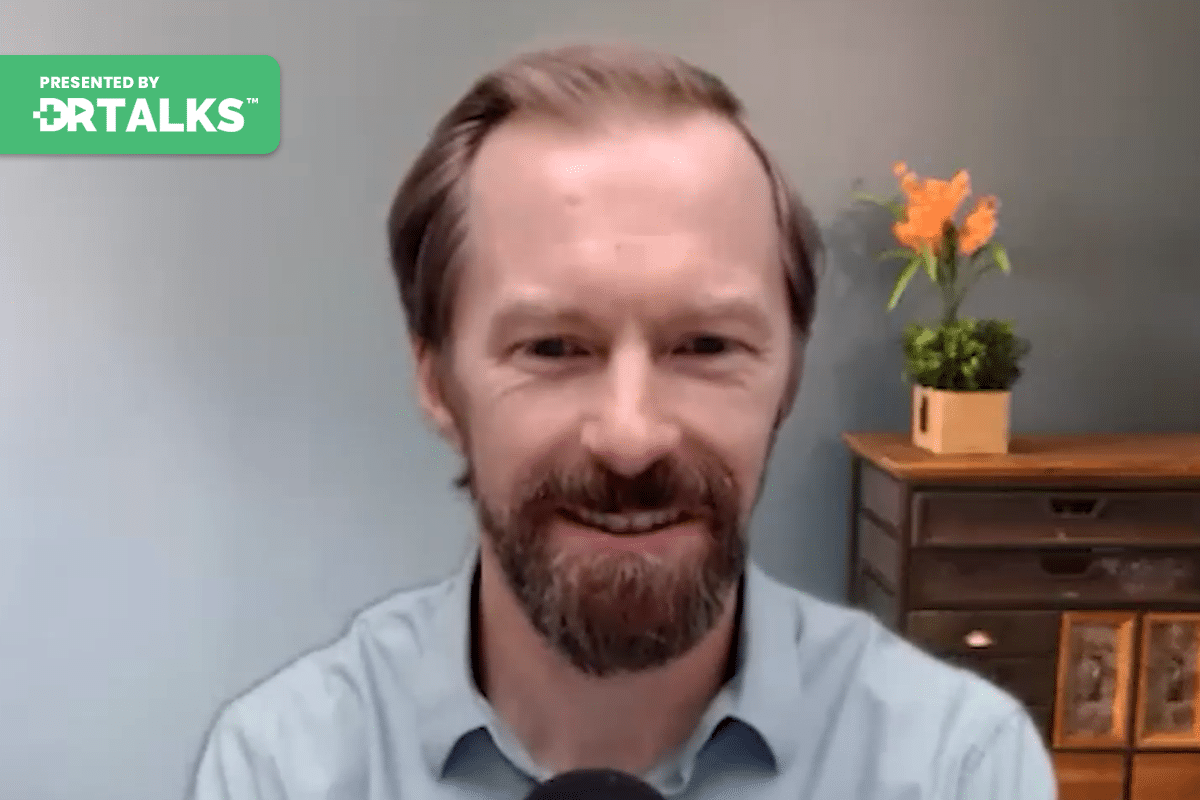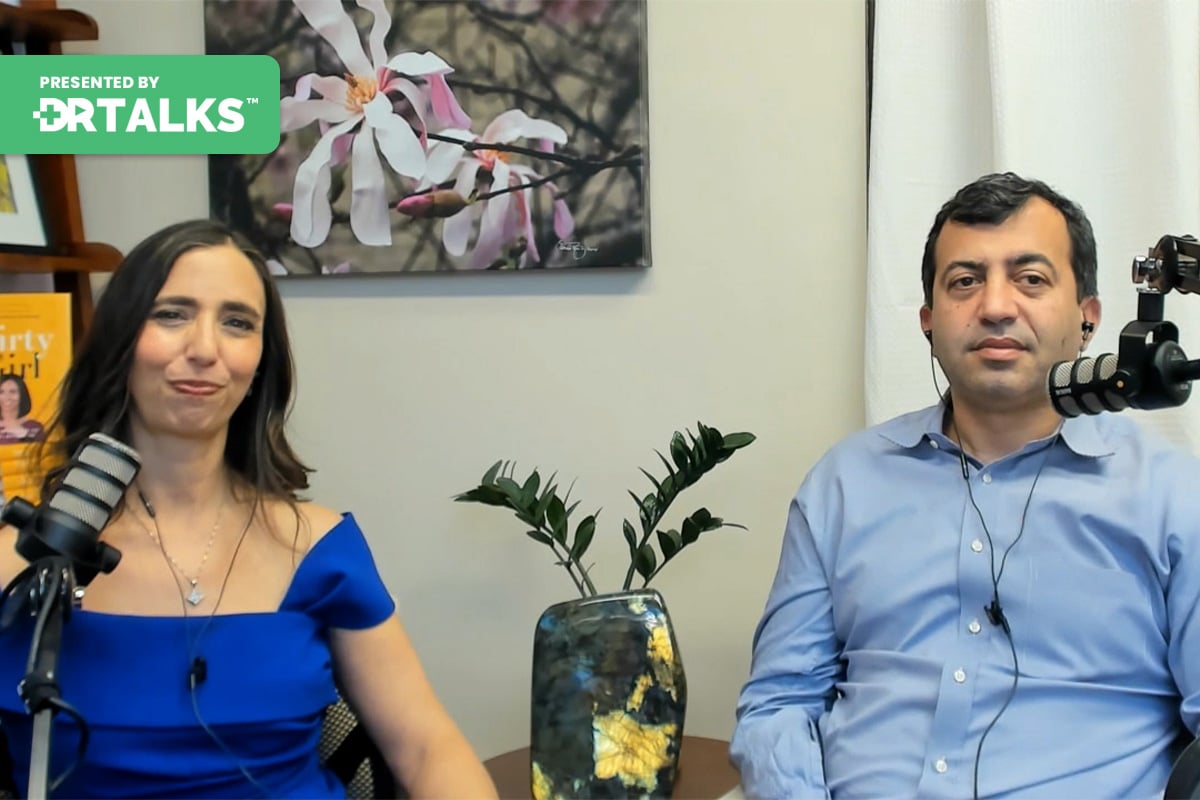Join the discussion below

Wendie Trubow, MD, MBA, IFMCP is a functional medicine gynecologist with a thriving practice at Five Journeys, and is passionate about helping women optimize their health and lives. Through her struggles with mold and metal toxicity, Celiac disease, and other health issues, Dr. Trubow has developed a deep sense of... Read More
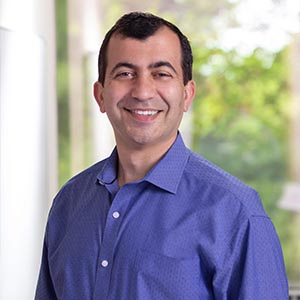
Edward Levitan, MD, ABIOM, IFMCP
As a double board-certified physician, I don’t just focus on the physical symptoms of my patients. I believe that their overall well-being is a result of the harmony between their body, mind, and spirit. My extensive training in both traditional Western medicine and Eastern practices like acupuncture and Shiatsu allows... Read More
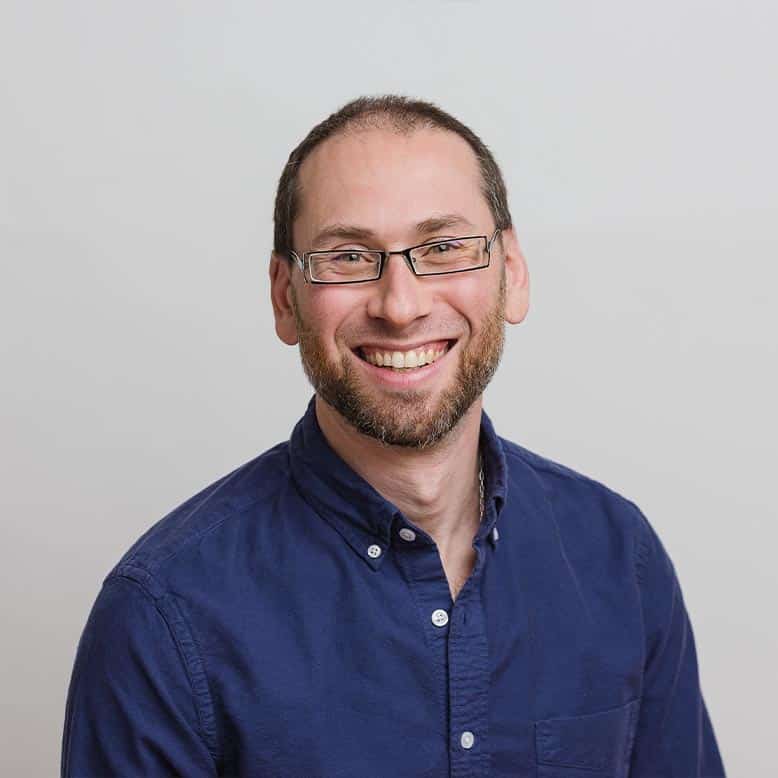
Evan H. Hirsch, MD, (also known as the EnergyMD) is a world-renowned Energy expert, best-selling author and professional speaker. He is the creator of the EnergyMD Method, the science-backed and clinically proven 4 step process to increase energy naturally. Through his best-selling book, podcast, and international online telehealth programs that... Read More
- Fatigue
- The 30+ Potential Causes
- 4 Step Method to Healing
- Emotional Trauma
Wendie Trubow, MD, MBA, IFMCP
Welcome to this episode of the environmental toxicants, auto immunity and chronic diseases summit. I’m Wendie Trubow, MD, MBA and this is my co host Ed Levitan, MD. We’re your hosts of today’s episode and guess what I know every time I’m excited about our guest, but really I’m super excited because it’s one of our new friends, Evan Hirsch MD. He’s also known as the Energy M. D. And he’s a well world renowned energy expert, bestselling author and professional speaker. If that’s not enough, he’s the creator of Energy MD Method, the science back and clinically proven four step process to increase energy naturally and has helped thousands of people across the world. So Evan, welcome to the summit recording today.
Evan Hirsch, MD
Thanks Wendie. Thank you guys so much for having me on.
Wendie Trubow, MD, MBA, IFMCP
We’re psyched, we’re talking about energy and I thought it was ironic because someone who shall remain nameless, hasn’t been sleeping and has been tired and full of sunlight and rainbows too.
Evan Hirsch, MD
Spoken like a true wife.
Wendie Trubow, MD, MBA, IFMCP
I love you deeply dear. So let’s talk about energy. I mean first question I always want to know is like why are you focusing on this? How did you get into this?
Evan Hirsch, MD
So when I was in high school, my older sister came back from college and she basically didn’t leave the room for about a year. It turns out that she had chronic fatigue. I didn’t really understand what was happening at the time. But that was really my first experience with it and then I graduated medical school started my family medicine residency. Met my wife fell in love and then she got fatigue and it lasted for about three years at that point, she was about 80% better. And then we got married. I waited until she was better before then we got married and I’m just kidding and we got married. I started my practice, we had a kid and then a couple of years later I got fatigue and lasted for about five years and just about destroyed my life. I was napping under my desk every day with the door closed, you know, because I was so embarrassed that here I was a functional medicine practitioner and I couldn’t fix myself. I couldn’t figure out what was wrong.
A lot of it had to do with the fact that I wasn’t actually treating myself. I wasn’t paying attention to what was going on. I was just trying to push through. And it was only when I finally actually realized, hey, I’m, I’m a functional medicine provider. All I have to do is find the causes and I’m going to be successful. And so that’s what I did. And I found, you know, now I’m up to with 37 38 different causes. And I went through and found the 30 plus causes that I had and fixed them and you know, got my life back. But you know, I couldn’t, I couldn’t help out my wife at home. We had this new baby who she was a toddler at that point, it was like daddy play with me and I’m like, I can’t, I’m just lying on the couch, Stacy’s just come out of her the fatigue. And she’s like, can you do the dishes? I’m like, no, I’m lying on the couch. You know, I had to keep hiring people at the office to do my job. Like it was bad news. So that’s my mission now is to help a million people increase their energy so they don’t have to deal with what I dealt with.
Edward Levitan, MD, ABIOM, IFMCP
That’s pretty profound. What about energy? Like what is energy? Let’s kind of dive deep. Like what do you, so you said you had no energy. So is it just really just, just that is just a sense of no vibrancy. Is there more to it? How does one, like if you’re tired in the morning when you wake up or if you’re tired at the end of the day, at the end of a long day, do you have no energy? Is it okay? Is a woman that has kids and has a career and tired? Is that okay?
Wendie Trubow, MD, MBA, IFMCP
Where is it a problem?
Evan Hirsch, MD
So it, you know, it’s, it’s subjective, so it’s different for everybody. But the reality is is that if your energy is not where you want it to be, there’s a problem. And if you’re compensating for low energy by utilizing some tool, whether it’s caffeine, you know, whether it’s an energy drink or whether it’s napping during the day or whether it’s, you know, some sort of stimulant that needs to get you going, there’s a problem. And the reality is, is that when you have low energy, it’s a harbinger. It’s the, you know, it’s, it’s something that’s telling your body, hey, there’s a problem. And if you don’t fix it now, you’re going to have to fix it later. Because the reality is, is that these causes of low energy and fatigue are also the causes of heart attack. Heart disease, strokes, Alzheimer’s cancer. So you deal with it now or you deal with it later.
Edward Levitan, MD, ABIOM, IFMCP
At least at the minimum. And I think, I think that part of it is we’re trained to, in college, you were talking about college, were trained to pull all nighters were trained to go coffee, just get it done. And I think some people can do that fine and a lot of people can’t and the people that can’t look at the people that can say what’s wrong with me, I just need some more coffee. And I definitely think our society is backwards in terms of our ability to really listen.
Wendie Trubow, MD, MBA, IFMCP
I always have that conversation with my patients where they’re like, okay, doc is coffee bad. Like, intrinsically it’s not bad. But if you’re using it because you have no energy and you’re using it to force your body to produce energy, then yes, it’s bad because you’re then exacerbating the problem instead of instead of listening to what your body needs. So if you’re using it as an experience, right? Like we’re sitting down, we’re having a little coffee and it’s a chat and I’m not using it because I can’t keep my eyes open. It never worked for me by the way, I remember falling asleep in my all nighter post, you know, post all night or test drinking coffee, falling asleep as I jit erred off the page. That was didn’t keep me awake though, just made me jittery. So that was like one and done. But yeah, so it’s not intrinsically bad.
Evan Hirsch, MD
I agree. And, you know, unfortunately in our society today and so many of the patients that we see there is, you know, there’s a lot of mental and emotional stuff in addition to the physical. So, you know, one of the things we can talk about is energy from all these different perspectives. You know, it’s mental, it’s emotional, it’s spiritual, it’s physical. Like where are these energy trainers and how much of this comes from developmental trauma where, you know, where we need to be perfect, but we need to be pushing, we need to achieve, right? I mean, I’ve achieved so much in my life by pushing through and that’s great, but unfortunately, it got me to a point where, you know, it put it put me in trouble, you know, my body could not compensate any longer. So that’s the that’s the larger issue that we see that we kind of have to retrain people in society and unfortunately it needs to be more of a global societal change as well.
Wendie Trubow, MD, MBA, IFMCP
I’m guilty of that. I mean we were on vacation and I got sick but I didn’t know I was sick and then we went to this mountain to climb and okay, it was the base, the elevation of the base camp of Mount Everest. So it was really high. So I just figured I had altitude sickness. I didn’t know I was sick and so I was determined that I was going to climb that mountain because there’s nothing wrong with me, right? I’m just pushing through, but I didn’t want to miss out on that experience. Yeah, I mean, I did an O B G Y N residency and Practically wrecked my, well, I got autoimmune disease and residency, but I mean, I know myself, the OBGYN residency was 20 years ago, but this was only a few months ago. It’s still really struggle with where’s that line between pushing through and not pushing through and just being like, yeah, I mean, I didn’t have to climb that mountain. I have amazing pictures and amazing memories but I didn’t have to do that and I think it’s hard for a lot of people to sort of in the moment draw the line and go, yeah, this isn’t working for me. I didn’t go on the six hour hike that you went on, I was like, I’m far too sick to do that, but I can climb a quarter of a mile. It took me an hour and a half, but I’ll do that. But I think it’s hard for people.
Edward Levitan, MD, ABIOM, IFMCP
I think most people are used to pushing through and getting up drinking their coffee and going to work and yeah,
Wendie Trubow, MD, MBA, IFMCP
And with our kids, like when they say they’re really tired, I’m like, okay, you should rest. But does that mean skipping your activities or does that mean it’s really hard to navigate this? So my heart goes out to people because I struggle with it. I think you struggle with it. So you mentioned 37 causes of low energy, like what are they from?
Evan Hirsch, MD
Let’s go, well let’s divide them into categories. Make this a little bit easier. And for people who are listening, do not get overwhelmed by the number. Just realize that you just walk through a process and you and you fix all of them as you go, and it doesn’t take as you think it is. Exactly. So we’ve got deficiencies. So things that are not in the body that are supposed to be and we’ve got toxicities or toxicants. We’ve got, these are things that are in the body that aren’t supposed to be, it’s a good thing. We’re on the summit and we’re talking about this thing. So with the deficiency, these things that are not in the body that are supposed to be, we’re talking about deficiencies and hormones. So adrenals and thyroid and sex hormones deficiencies in mitochondrial dysfunction in mitochondria, which makes 80 to 90% of our energy and produces R. A. T. P. We’re talking about deficiencies in vitamins and minerals In neurotransmitters and then in lifestyle habits like not enough sleep, not enough water, not enough, good food, not enough movement.
And then with the toxins we’re looking at things like heavy metals, chemicals, you know, there’s 86,000 different chemicals we’re exposed to on a regular basis 500 chemicals before most people walk out of the house in the morning if you’re still commuting that you’ve been exposed to from your shampoo to your soap, you know, like whatever plastics, cosmetics. Exactly. So that’s heavy metals and chemicals, molds, you know, and I recently heard from somebody saying actually it’s more than 50% of all buildings in first world countries, it’s actually more like 60 or 70% have water damage and most of those have mold and consequently you can get all the symptoms and the dysfunctions associated with mold and then there’s infections, whether it’s parasitic infections and no you do not have to leave the country in order to get parasitic infections, whether it’s Lyme type infections, you know, no, you don’t have to get bitten by a tick to get Lyme and some of the co infections that we can talk about today. Maybe it’s Epstein Barr virus, maybe it’s covid you know with now long Covid with a really high numbers 30 to 50% of everybody who gets covid ends up with persistent symptoms. Right then there’s the negative emotional patterns and the trauma that people have experienced electromagnetic fields. You know anything that wifi five G, four G whatever. So you know you break all those out and you come up with 37 different ones. Hyper coagulation is one. Constipation is another. So there’s a number of them hyper coagulation for those who don’t know it’s basically thick blood and it happens when you have a number of these different infections but it decreases the oxygen supply to the different parts of the body but there’s a lot of causes. But all you got to know is that you start working through these before you know it you know you invest some time into it and you’re gonna be back on track.
Wendie Trubow, MD, MBA, IFMCP
You make it sound really easy Evan.
Evan Hirsch, MD
It’s not easy.
Wendie Trubow, MD, MBA, IFMCP
No, we want to have hope. There’s hope it’s flexible, it’s just not as easy as waving the want.
Evan Hirsch, MD
Yeah and part of what I’m talking about is that you wake up every day and you’re committed. You know you’re committed to taking the supplements you’re supposed to you’re committed to checking in with you know in our case it’s our community or getting on your one on one calls with a group calls, it’s working on your mindset every single day, we’ve got an energy mindset practice working on your emotions, you know, we have trauma informed coaches on staff, you know, so it’s like all this stuff in addition to the physical, but you just have to put one ft in front of the other and you get there but you have to make that commitment start somewhere.
Wendie Trubow, MD, MBA, IFMCP
How, why do people experience that? It’s so hard to treat. I mean this seems sort of low hanging right because you live in the universe and even as you’re pulling off the toxins and the stressors, you’re adding more to the mix. But what do people really what are the places people fall down in their recovery.
Evan Hirsch, MD
So it’s the number one reason why people don’t get well is because they don’t find all of their causes. And it’s just because and I was you know, one of these physicians as well is that not all physicians want to deal with mold and lime and long covid and all this sort of stuff. You know, like it’s very complex, it’s challenging And requires a lot of support and it’s a lot of work and I didn’t want to do it, but I was forced to because I got sick with it and I had enough people who showed up in front of me and said you have to read this, you have to learn this or you know whatever so I had to move in that direction and it’s been you know very helpful in getting people better. But the biggest thing is that people don’t figure out the causes. Now. Of those 37, different causes. Everybody has at least that we see has at least 20 you know, and so there’s a combination of causes and everybody has a different combination. So Sally Sue might have 13579, 12 whatever and Joe Schmo might have 2468 10, right? So and so on. Right? So it’s just this combination of causes that everybody has that makes them an individual and those are the layers of the onion that have to be peeled off one by one.
Wendie Trubow, MD, MBA, IFMCP
Who is that? I think it was like a pediatrician who was one of the founders of functional medicine said if you’re sitting on attack and you’re not going to feel better until you take the tack out. But if you’re sitting on 10 tax and you remove one tack you’re still gonna have a lot of problems until you start to remove all of those tax. So I’m just that reminded me of who it was. So it was like he just died within the last few years. I’m not good at recalling. So I’m not going to come up with it, we’ll have to look it up. But he said that and
Edward Levitan, MD, ABIOM, IFMCP
Yeah and I think that’s kind of, I think that’s a lot of functional medicine physicians, journeys at least two people that want to continues. I know I didn’t want to get into line because it was for many, many reasons.
Wendie Trubow, MD, MBA, IFMCP
And Massachusetts, Massachusetts residency is one of them we live.
Edward Levitan, MD, ABIOM, IFMCP
But it’s really, yeah, we may not want to get into it and I agree a lot of, especially new functional medicine doctors, it’s just overwhelming.
Wendie Trubow, MD, MBA, IFMCP
It’s like drinking from the firehose. You know, there’s so much to learn and then you’re like mold mycotoxins, heavy metals, lime and what to treat first. How do you do it safely?
Edward Levitan, MD, ABIOM, IFMCP
All this stuff. And what it sounds like, which I love is not only do you have the knowledge base but that you have a system and you have the support, which is pretty thing awesome. Because it’s not easy to put this together, especially with complex when multiple issues. So I’ll kind of say the thing I tell people I see with Lyme disease is there are three kinds of Lyme people. People that have Lyme that don’t know, don’t care. People have Lyme disease that take two weeks of antibiotics and they’re fine and then and then there are people that see us and those are the people that have gone through 2010 to 20 to 50 doctors that can’t get an answer to have at least 3 to 5 major issues. And then you talk about 20 I’m depending on how you sort of but three or five major issues and then a lot of other issues. And that’s the thing I think that people, a lot of people miss in our society which is a very linear society. Oh I have fatigue. I need to take some co Q 10 or some coffee or whatever it is and I’m done because that’s fatigue equals this. But it’s really fatigue equals all this. And we’ve got to find a system. So it’s awesome.
Evan Hirsch, MD
Yeah it’s a different paradigm. It’s a different way of looking at it. You know, we want the easy fix because we’re human. You know whether it’s a supplement or whether it’s a prescription but the reality is that, you know as humans were complex individuals and physiologically among other things. And so we have to take all that into account.
Wendie Trubow, MD, MBA, IFMCP
So you basically took your mess, your mess became your message, right? So you took your mess and baked it into something pretty amazing. Which is this four step method that you use? Right? Can you talk about that?
Evan Hirsch, MD
So the first step is figuring out what causes somebody has, right? We’ve talked about how there’s 20 plus different causes that people show up with. Now, fortunately of those 38 causes we’ve been talking about 75% or actually just calculate the other day, 79% of them can be determined by symptoms alone. So you can you can know just by figuring out just by going through, you know, we’ve got a workbook, we have people go through our step one, they’re gonna know 79% of their causes, which is incredibly powerful because then you can actually just spend the rest of your time matching up the solution with those particular causes. So that’s the first step. Then in the second step, we replace the deficiencies. The reality is that this process is all about step four and removing the toxins.
But in order to deal with those and remove those, we have to be strong enough in order to be able to do that. So in step two, we replace the deficiencies, adrenals, mitochondria, thyroid or will be called the Big three because they’re going to make a significant improvement in people’s energy, increases stamina, increases resilience. Then we work on some of the lifestyle habits and stuff like that. In addition to some of the other deficiencies, but we don’t spend too much time on step two, then we go into step three and we open up the drainage pathways. So intestines, liver, kidney lymph neuro lymph gallbladder, making sure that when we go into step four and we actually start grabbing heavy metals or chemicals or mold or whatever that they have a place to go, that you can actually get them outside the body right and step three is one of those places where if you feel worse on treatment, this is the reason why is because you didn’t spend enough time opening up those drainage pathways.
And the way that I like to look at this is like a funnel. So it’s kind of like you’re gonna be dumping these toxins into the funnel of these drainage pathways and if the bottom of this funnel is tight, guess what, those toxins are just gonna go right back into different compartments in the body. But if you’ve done step three properly, it’s open and things will flow out and your the goal is that the rate at which you want to get rid of these toxicants is the amount at which you have, you have dumped them in. So essentially, you know, it’s easy so that you’re not overflowing and then step forward removing the heavy metals, the chemicals, the molds, the infections, the allergies, the negative emotional patterns, the electromagnetic fields.
Wendie Trubow, MD, MBA, IFMCP
How long, how long does a typical person take to go through those steps?
Evan Hirsch, MD
So all of our programs are 12 months, they used to be six months, but we found that that wasn’t long enough. So 12 months. But there are people who sometimes need to take longer periods of time. So if they’ve got MCAS mast cell activation syndrome, if they’ve got multiple chemical sensitivity, you know, if they’re having a hard time tolerating supplements or if they’re living in mold and they can’t get out some of these are our reasons or, you know, negative emotional patterns, if they got significant trauma and they’re not able or willing to do olympic system retraining program or actually work on their mental emotional health, then it takes longer for the people listening.
Wendie Trubow, MD, MBA, IFMCP
We’ve talked to Aimie Apigian in during the summit and she talks a lot about the biology of trauma and the ways to retrain the body. So that would be a good episode to tune into.
Evan Hirsch, MD
Absolutely.
Wendie Trubow, MD, MBA, IFMCP
Okay, so your program is a year and obviously there’s a bell curve and some people are faster and some people are slower who are the people who fail the program, you know, like up front, are you able to say like you’re not a good candidate, You’re not gonna win?
Evan Hirsch, MD
Absolutely. Yeah. So when I get on free, 20 minute calls with people, I’m always trying to figure out can I help you and are you a good fit for the program? And so I know if I can help somebody if they haven’t addressed all of these causes and I can tell by their symptoms, hey, this is a cause that I believe that you’ve missed and I can help you with that or if they’ve gone after a particular cause and they haven’t been successful, but they haven’t been using necessarily the solution that I would use, you know, so if somebody did antibiotics for Lyme and it turns out that and they didn’t have success with it, but they weren’t really going after bartonella and babesia and they’re sweating up a storm and they got paint on the bottom of their feet. So that’s always what I’m looking at. So and then in terms of them being a good fit for the program, like I saw an 82 year old on a call the other day and I was like yeah I don’t think she’s gonna be a good fit because you know like I’m 100% online. So you know, how do you do a zoom, how do you do, can you order supplements online and then organize them so that you can take supplements, you know 3-5 times a day. Can you show up for group calls for one on ones? Are you completely bedridden? You know, how much, how much hand holding do you need? Are you willing to work on your mental and emotional health?
That’s always a big one for us. Are you willing to engage with our online community? Not on facebook? You know, we’re really excited about our new platform. So those are the things that we see and are you willing and able to get out of a moldy home? That’s always a big one. So those are generally the people that really aren’t a good fit for our program at this time. And in terms of people failing the program, I would say that, you know that’s usually those people, but it’s if they can’t tolerate and we get very creative with supplements. You know, we have a lot of MCAS people in our program. So oftentimes if they can’t tolerate oral supplements then we’re going topically or we’re focused on things like saunas or coffee, enemas, some exogenous different types of therapies. Because you know, if any, if you’ve got immune system dysfunction And 80% of your immune system is in the gut than anything that you throw down the gullet, you can potentially react to. So we have to bypass that in some way. So for those people, it just usually takes longer. But it has to do with also the commitment, you know, like if people keep showing up, they’re going to get the results because we’re gonna figure out what’s going wrong, we’re gonna keep tweaking it, we’re gonna keep pivoting. I’ve got lots of tools, you know? So it’s just about if people are willing to continue that to continue walking that path and if they realize that it’s a marathon, you know, so much of this is expectations, right? It’s a marathon. It’s not a sprint.
Wendie Trubow, MD, MBA, IFMCP
What how many times do you feel like you’ve back slid in in your own process and journey where you’re like, oh wait, I’m on the cusp of it again. Yeah, it’s human, right?
Evan Hirsch, MD
Yeah, that’s a great question. And you were just talking about Ed not having good sleep, but about six months ago I started having problems with sleep. And so I’ve been kind of exploring that as well. And one of the things that I haven’t been, you know, that I only learned about just a couple of years ago was parasites. And that was one thing that I hadn’t treated myself with initially, or for initially. And so now I’m starting to do more of that. And so it’s like, okay, so I went, I went after parasites but it was too strong, had to back off, you know, So just kind of, I tell people that this process is very much two steps forward, one step back. But as long as you’re doing two steps forward, one step back, guess what? You’ll still complete a journey of a million miles. It just might take a little bit longer. But that’s the, that’s where you need a mentor like us, right? Where it’s for those bumps in the path and for people who wanna, who, who want to walk that path with a mentor, I don’t have all the answers, you know? But I’m going to do my darndest for folks and I’m going to have compassion and I’m going to hold their hand on the journey,
Wendie Trubow, MD, MBA, IFMCP
I have a question, but I want to make sure that I don’t totally like steamroll over. Do you have a guideline for how many hours in bed you want them to try to get for sleep?
Evan Hirsch, MD
Yeah, I mean I stick with 7 to 9 hours. I mean oftentimes we have to recreate their circadian rhythm. We’ve got somebody in our program right now who would get up at noon every day and then she’d be like up and down for about nine hours while she was awake and whatever. But I find that you know through some of the supplementation and some of the things that we’re doing, then all of a sudden now they’re waking up at seven o’clock in the morning. They’re getting 13 hours of awake time, but 7-9 hours is what I recommend and what I’m finding too, which is really interesting in myself using my or a ring. And then also in a number of clients is that the earlier you go to sleep the better. I used to say like 10:00 was good. Now, I’m saying like 9:00 is even better. And the hours that you get, I remember my mom saying this growing up, the hours you get before midnight count is double and I was like mom, whatever. But that’s what I’m really seeing is that people’s scores are significantly higher when they go to sleep earlier. and you know, when they’re doing all the other things we recommend.
Wendie Trubow, MD, MBA, IFMCP
I talked about this a lot. I’m obsessed. I wear the group, I’m obsessed with my data. And every morning, you know, I say, I wake up, I say that the system okay, I’m awake now and then it processes and then I look, that’s like one of the things I do in the morning is evaluate my sleep. How did I sleep? How much was I awake? How was it? But what’s so interesting is this goes back to the pushing through part is I would say before BC, before Covid, I used to routinely get seven hours in bed and seven hours in bed does not translate into seven hours of sleep. But somewhere between six and a quarter and 6.5 depending on the quality of sleep. And then when we took away the but we never left the office right? We live like five minutes from our house. So we continue going to the office. But when we took away driving the kids to school and driving the kids to all their activities and all the running around. We were both able to get more hours in bed and now I’m happiest nine hours in bed, even 10 hours in bed. Actually, I’m kind of happy because then I can get nine hours of sleep.
Evan Hirsch, MD
Yeah. Yeah. More more is definitely better, you know? And the thing is that you don’t realize what you’re missing until you actually start giving it to your body and it’s not gonna know right away. It’s gonna start grabbing onto more and you’re gonna feel more tired because the body’s like, oh yeah, I really like that. But yeah, it’s really interesting what happens when you start giving the body what it needs because yeah, it’s gonna be different for everybody, but for most people it really is on the higher side of that, you know, 8,9, 10 hours though. Most people can actually get in the nineties at least on the or a ring if they’re getting more than seven hours, as long as they’ve got, they’ve got good stages of sleep and they’re going to sleep at the right time and stuff like that. But I would concur I think that more is better in this case.
Edward Levitan, MD, ABIOM, IFMCP
Yeah. Well, the thing I’ll allow it to that is the especially when you’re recovering, you want more sleep, that’s when you recover. So if you’re talking about people with chronic disease, you want the I’d say 8 to 9 to 10 hours of sleep while you’re recovering afterwards. Yes. Go back to your 7,8,9, whatever it is, not you, not you, but when you recover, people don’t just like we were talking about listening to your body about fatigue. It’s the same thing. We need sleep and most of us will not give us give enough time. So it’s really important to be gentle with yourself and give yourself time to recover and it takes 3-12 months to recover. It’s not a quick process. People want to be done in a couple of weeks. But I’ve been sleeping for a couple of weeks? It’s about.
Wendie Trubow, MD, MBA, IFMCP
I’ve eaten well for a week, why aren’t I at my ideal weight.
Evan Hirsch, MD
Right. And I do know I was gonna come back to what Wendie was saying about the seven hours that you’re absolutely right because nobody gets 100% efficient sleep. You know, you’re lucky if you’re getting 90% efficient, right? And so aiming for eight hours in bed at least is ideal because then, you know, at least you’re gonna get hopefully seven hours of good sleep as long as your sleep architecture is good.
Wendie Trubow, MD, MBA, IFMCP
Where do you fall on alcohol? Because alcohol in is in and of itself a toxicant and is an acute toxicants that essentially divert and and and delays all other work having led the witness down the path. I’m a big fan of alcohol now.
Evan Hirsch, MD
No, I mean and it’s really interesting also with the data to see what happens, you know, like if I have an alcoholic drink like the next day, I’m like boom, 60s, you know, in terms of my score. And then yes, it may, you know, help you fall asleep. But the reality is that sleep that you’re getting is not good, right? But there’s lots of people obviously, you know, they’re they’re self treating their self medicating because they’ve got anxiety or whatever it is and it helps. They think it’s helping them sleep, but the reality is that it’s not?
Wendie Trubow, MD, MBA, IFMC
So you sort of tiptoed around this. Do you feel comfortable getting in your face about this, do you say to people I recommend you don’t drink, or do you say do what you want? But it’s not the best idea, like where do you fall on that?
Evan Hirsch, MD
I got certain non negotiables, but I’m a big fan of autonomy and empowerment. So and I’m very collaborative, so I don’t, if people are like, hey, I’m not giving this up, I’m like, okay, just know that at some point we may have to have this conversation again because you may not be getting the progress that you want. It’s like what you said about the tax in the bottom of the foot, right? If you remove the, if you’ve got, you know, 20 different causes and so you’ve got 20 tax in the bottom of your foot and you remove the gluten tack, you may not notice a difference, but the reality is is that you’re gonna have a lot more success if you keep gluten out of your diet, right? And same thing goes for things like alcohol and whatnot. It’s like, okay, I understand right now, but you’re gonna have a lot more success if you remove it. So I try to do it with education and with motivational interviewing, but I’m not I’m not super strict on a lot of that stuff. I tried to lead people there.
Wendie Trubow, MD, MBA, IFMCP
I would say to my patients, you know, one if you’re drinking for stress reduction, let’s work on stress reduction instead of alcohol. And two, if you’re drinking because you want the experience, then let’s see if we can convert your experience so that you have either a smaller glass, so your entry physically drinking less or you have a spritzer of some sort. So you dilute the alcohol, so you still have the experience, just like the coffee drinkers, like the experience, keep the experience but decrease the intrinsic amount you’re getting.
Evan Hirsch, MD
Yeah, it’s yeah. I mean when you talk to people who have a pub on every corner, right? And that’s the social place. It’s, you know, it’s very challenging when that’s when that’s a big part of your identity and your social connection, you know, because then there’s other problems. You remove that, you remove people’s social connection if they can’t show up.
Wendie Trubow, MD, MBA, IFMCP
It’s funny, I stopped drinking 15 years ago, we went out for Ed’s dad’s birthday and I drank a whole bottle of sake myself, like, and it took me about a month to recover. I wasn’t hungover. I just didn’t feel well and I said, I remember saying to myself, Okay self, you clearly have adrenal dysfunction. And if a a big bottle is doing that to you, then a smaller amount is doing that in lesser amounts. So we’re not going to do it until our adrenals are recovered. Like we were talking, you know, me and me and myself are talking to each other. So I haven’t drunk since then and the amount of peer pressure that I’ve experienced and I’m 52 in a couple of days, like people are still like, why aren’t you drinking? And I’m like, I don’t like how I feel. Yeah, I don’t like the taste. I don’t like how I feel so I don’t want to do it. But it is really interesting because it’s hard to be that person who doesn’t drink. I’m that person anyway, so it doesn’t really matter gluten drink alcohol
Evan Hirsch, MD
Well and so much of that is the mindfulness component, right? When you, when you pay attention and you actually see how you feel, whether it’s in relationship with somebody, whether it’s based off something that you eat or drink, then all of a sudden the, you can, you can make more of a change, I believe and you can be more empowered to stand strong and realize, hey, I’m not gonna do this to myself.
Wendie Trubow, MD, MBA, IFMCP
You just really touched on something that we haven’t talked about at all in this summit or even in this conversation, which is toxic relationships, like every once in a while I’ll get someone across, I mean we have in person. So every once in a while, so we’ll be sitting across the table and I’ll say I can’t help you until you either it’s either a toxic relationship or a toxic job, Those are the two biggest, sometimes it’s a toxic home but that’s not a relationship per se, that’s an experience. So it’s those two relationships that can be so toxic for people that I can’t help you until you address that because that’s just like the spider web stuck to your face. You can’t get around it.
Evan Hirsch, MD
Yeah I’m glad you brought that up. I actually had a conversation with somebody this morning who I told her to leave her job and I don’t. I don’t do that lightly. But it’s the kind of thing where she’s a nurse and you know she’s kind of gone, she’s elevated over time and now she’s in this high powered position and it’s so incredibly stressful and she’s like why am I taking all these supplements to heal my gastritis? I don’t want to take these supplements anymore. And I said you can take a lot less supplements if you manage your stress better and you quit your job. And we have had lots of conversations about managing her stress. But it’s like there are some jobs and some relationships out there where you can do so much internal work and it’s near impossible for you to get to the place that you need to because if your stress is unmanageable then your immune system is going to be dysfunctional and infections are going to be rampant and you’re not going to be able to manage.
Edward Levitan, MD, ABIOM, IFMCP
I mean speaking of that how to talk to us a little bit about you said you have a coach that I forgot the exact words trauma informed, so how does that work? Because trauma is first, trauma is an interesting word, but that being said, it’s so personal, a lot of people don’t necessarily want to get into that. How do you, how do you kind of frame it so that people actually start to be willing to at least have a conversation, start that conversation.
Evan Hirsch, MD
So I start by normalizing it. So I say that there’s big t trauma and little t trauma and every everybody has little T trauma, you know, I was not physically abused but I was rejected by a peer group several times in my life and consequently that changed the way that I saw the world and that increased the the internal stress that I felt and the and my relationship to the world into other people and consequently that has a negative effect on my immune system and all these other things that we work on physically. So you don’t have to have big T trauma in order to have to work on your developmental trauma. Like our parents do the best job that they can, but they’re imperfect, just like I’m imperfect and I do the best job for my daughter but I fail her every day and I have to apologize often, I pay for the therapy. I know we’ve created something exactly what I’m already doing that.
But it’s yeah, so it’s it’s really important to take a look at that and being like, yeah, I love my parents and they did a really great job and I still have developmental trauma, you know, and this is why I pushed through because I want to please my dad because I want to place my mom because their needs were ahead of mine, whatever it is, I don’t understand my needs, you know? And so that’s kind of like what Stacy does, who’s my wife who’s a mindfulness coach and a trough informed coach. She teaches our meditation and then she also does, she’s a non practitioner and a RM which stands for neuro affective relational model for trauma and it’s a mindfulness based technique and it’s learning how to work with those emotions and the uncomfortable emotions. And I have a non practitioner that I work with one on one on a regular basis. So it’s just about improving our emotional intelligence, our, you know, our our mindset, our physical health, you know, all of that stuff has to be addressed.
Wendie Trubow, MD, MBA, IFMCP
So you are in a family business also, that’s what I took away from that.
Evan Hirsch, MD
I borrowed, I borrowed her, she’s yes, but she’s got her own business and doing like a bunch of really cool public health stuff in addition to her private practice, but then I borrow her for part of our program.
Wendie Trubow, MD, MBA, IFMCP
Right, for those years that I supported you for those years. You supported me. You’re coming in.
Evan Hirsch, MD
That’s right. I’m like, please, please I need this information and I’m not going to go back and get trained and my people need this.
Edward Levitan, MD, ABIOM, IFMCP
Okay. All right. I mean, what else should people know what else?
Evan Hirsch, MD
So they can find me at energyMDmethod.com and there’s a little widget in the bottom right corner. If they want to start a conversation with me, they can click on that and start a conversation and we can chat back and forth over text and see if we’re a good fit to work together. Also, I’ve got a free facebook group and everywhere on social media, but you know, it’s really all about people getting educated, you know, whichever practitioner you want to go with, you just want to make sure that you resonate with them. You know, it’s got to be somebody that you want to hang out with because you’re gonna be spending a lot of time with them and you need to you need to show up and you need to use them as a mentor and walk together down this health paths.
Wendie Trubow, MD, MBA, IFMCP
Great. And remember it’s a journey, not a destination, you’re never going to be there. It’s better. Okay, well thank you for joining us for another episode of the environmental toxic kins auto immunity and chronic diseases summit. It’s Ed and Wendie and our guest today was Dr. Evan Hirsch and what a pleasure, Evan. Thank you for being here.
Edward Levitan, MD, ABIOM, IFMCP
Thank you as always.
Evan Hirsch, MD
Thanks. Thanks for having me on guys appreciate it.
Downloads

